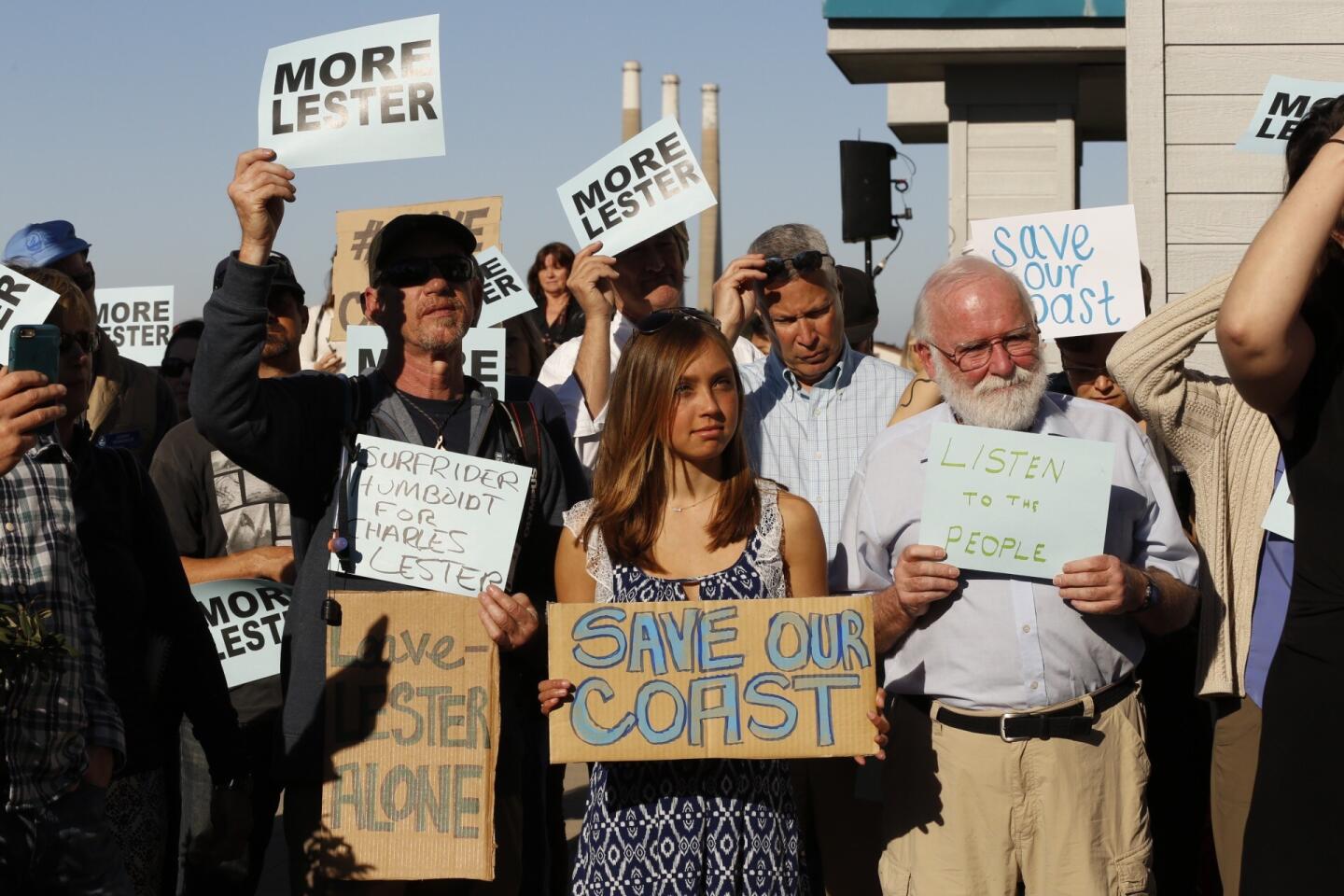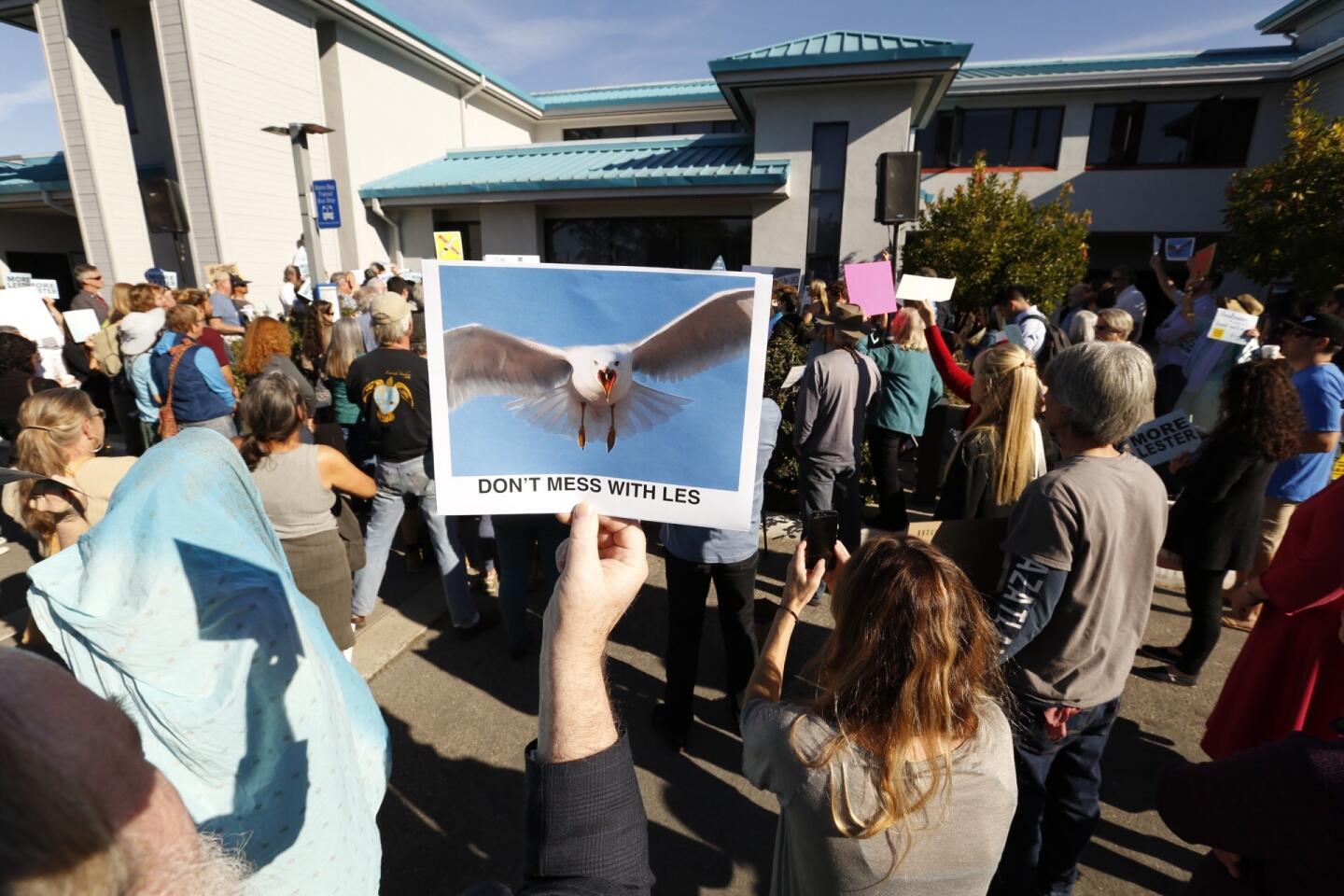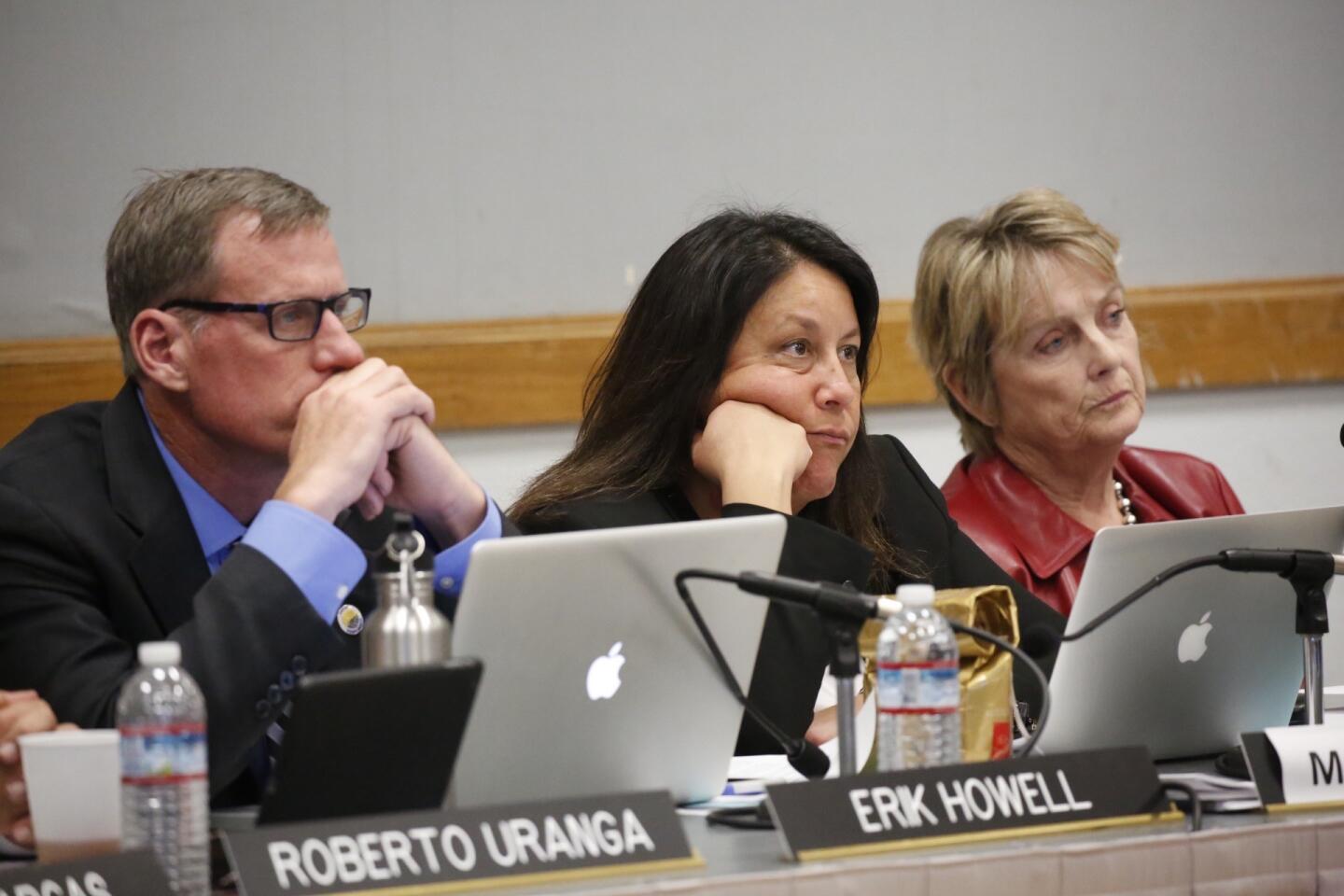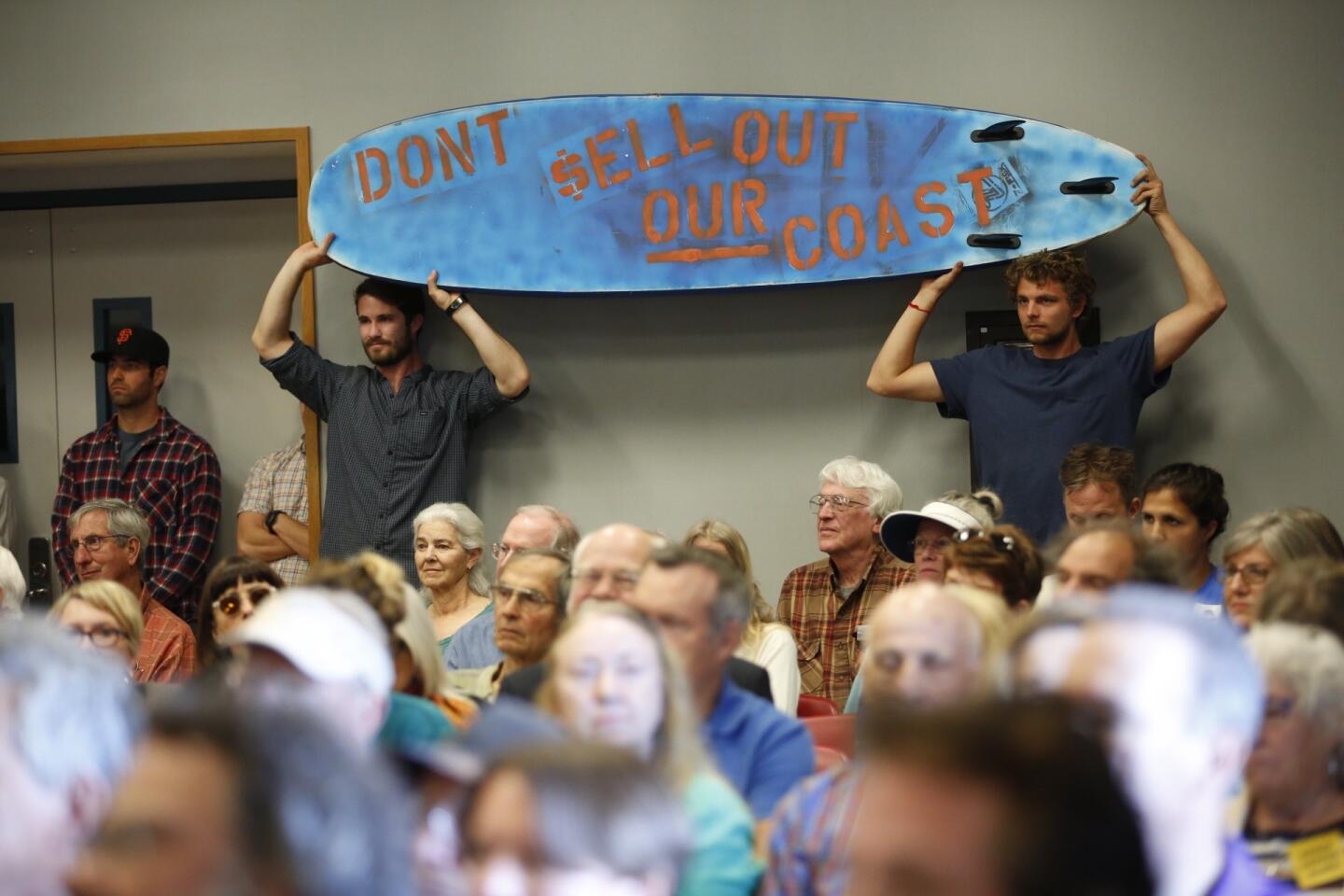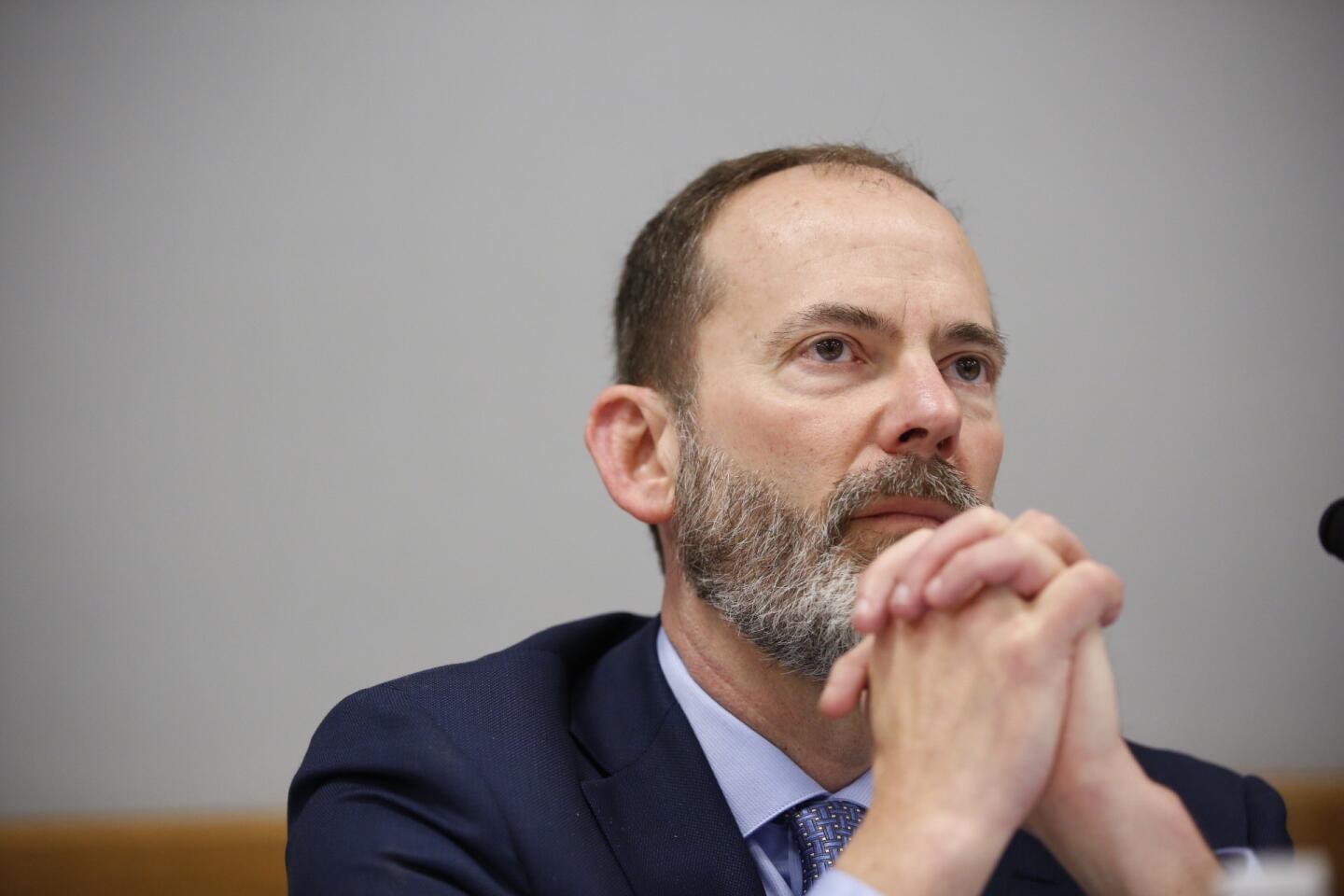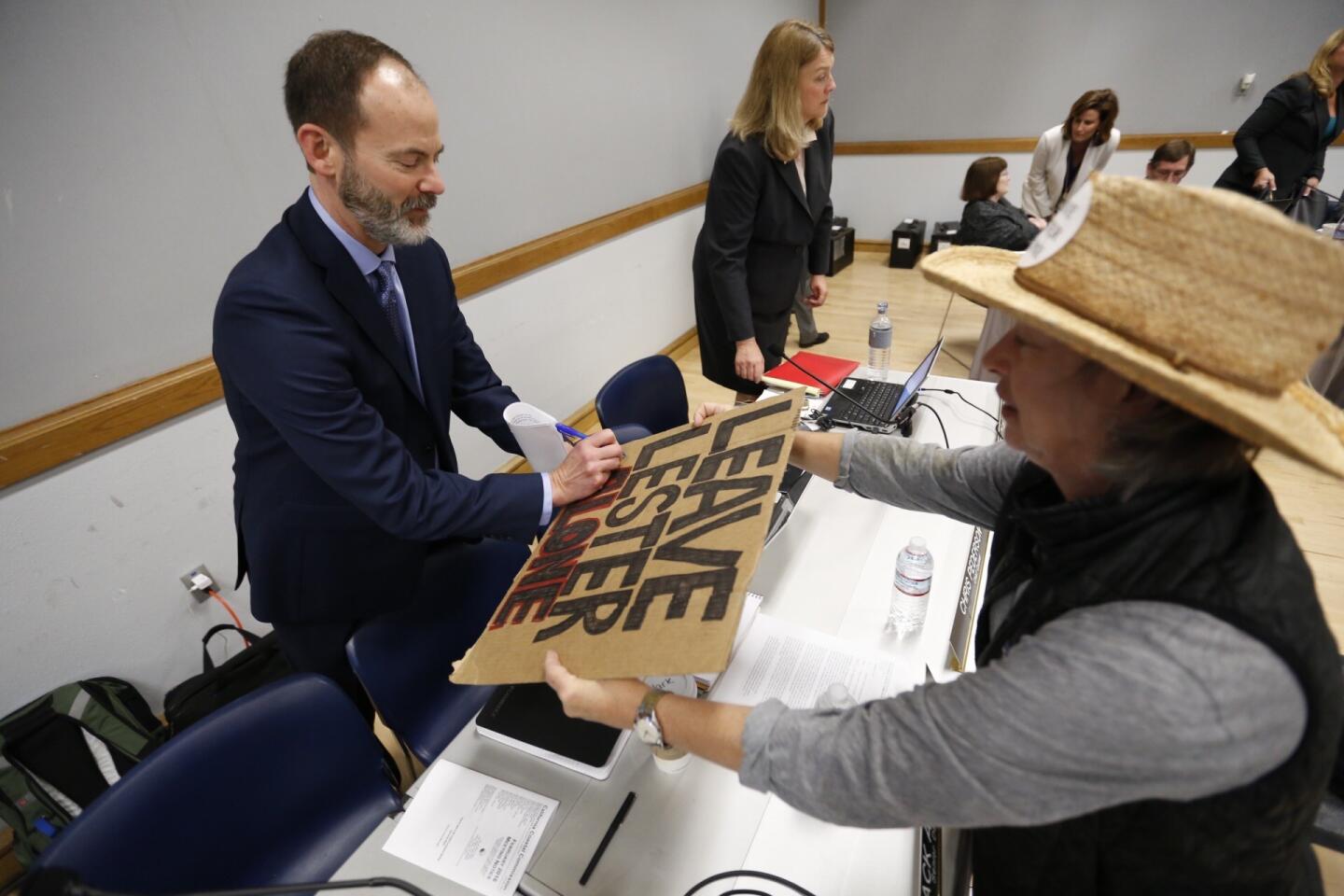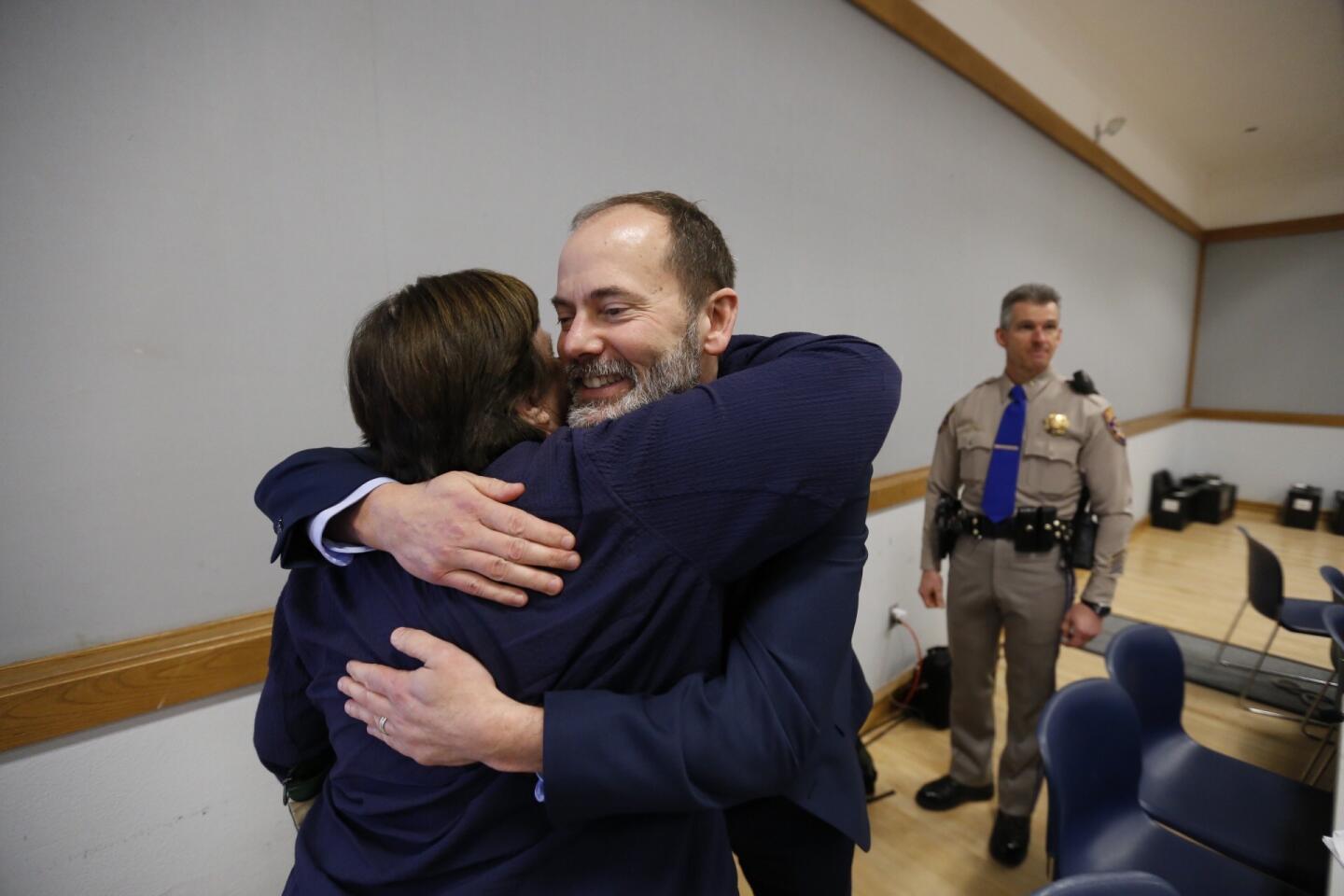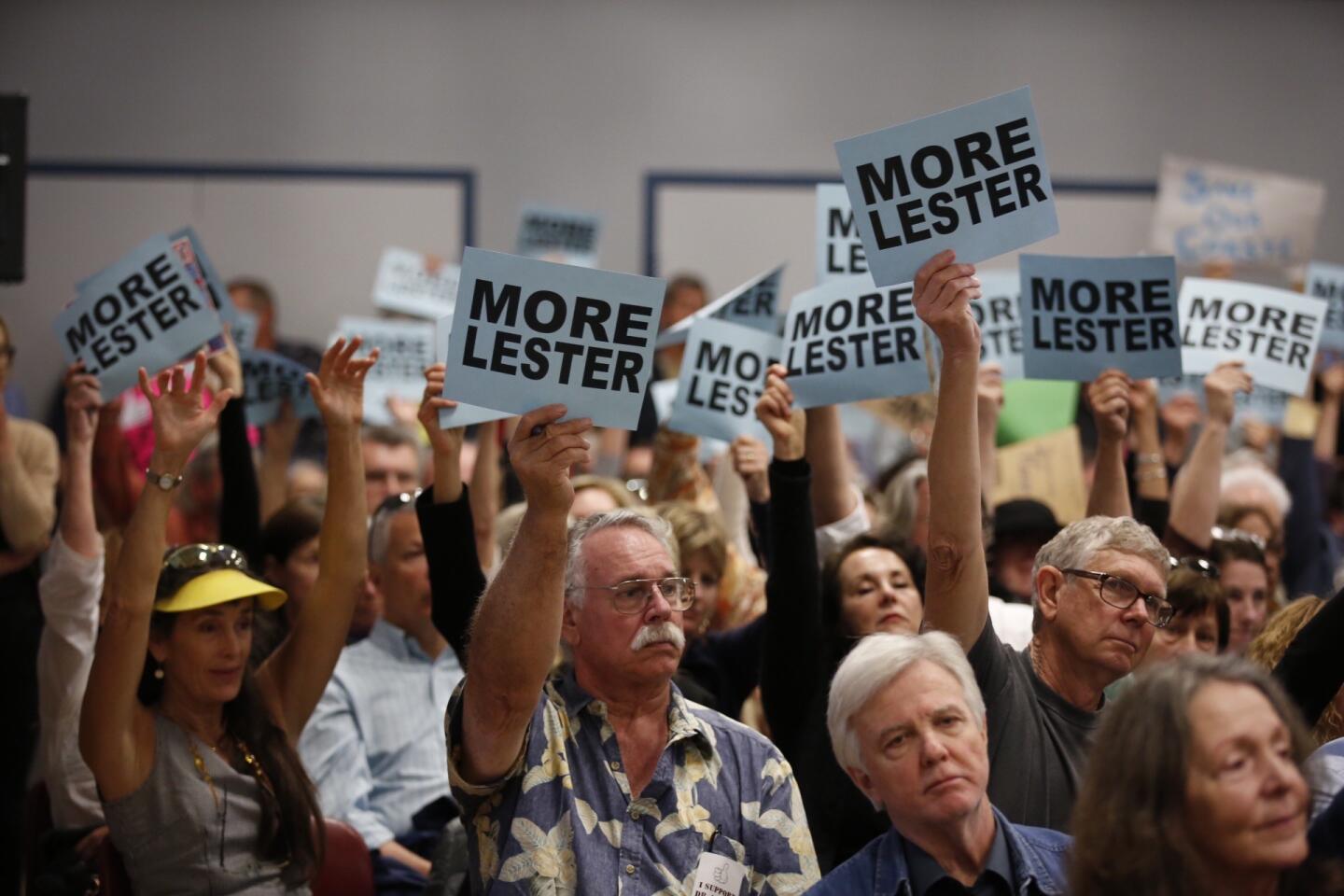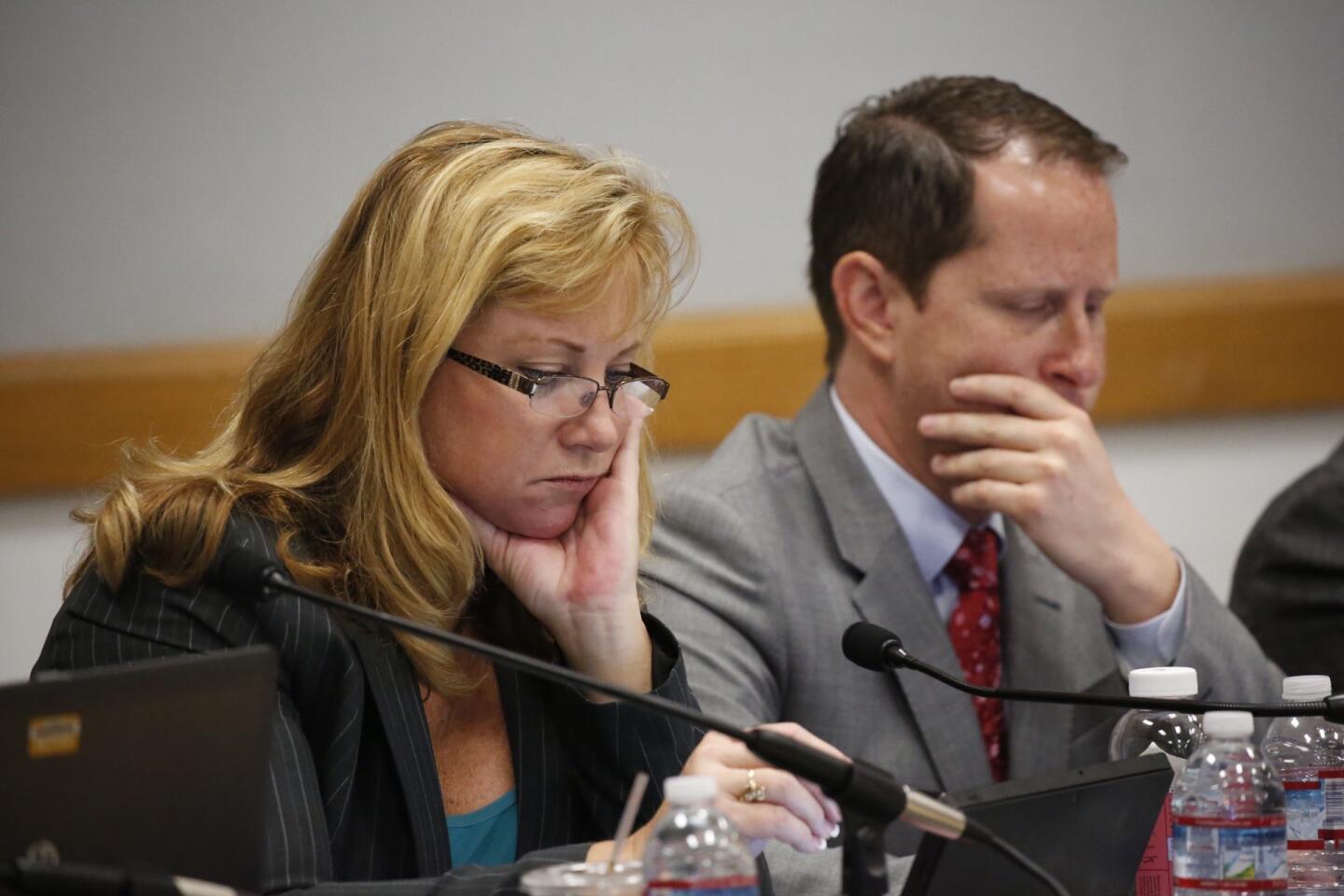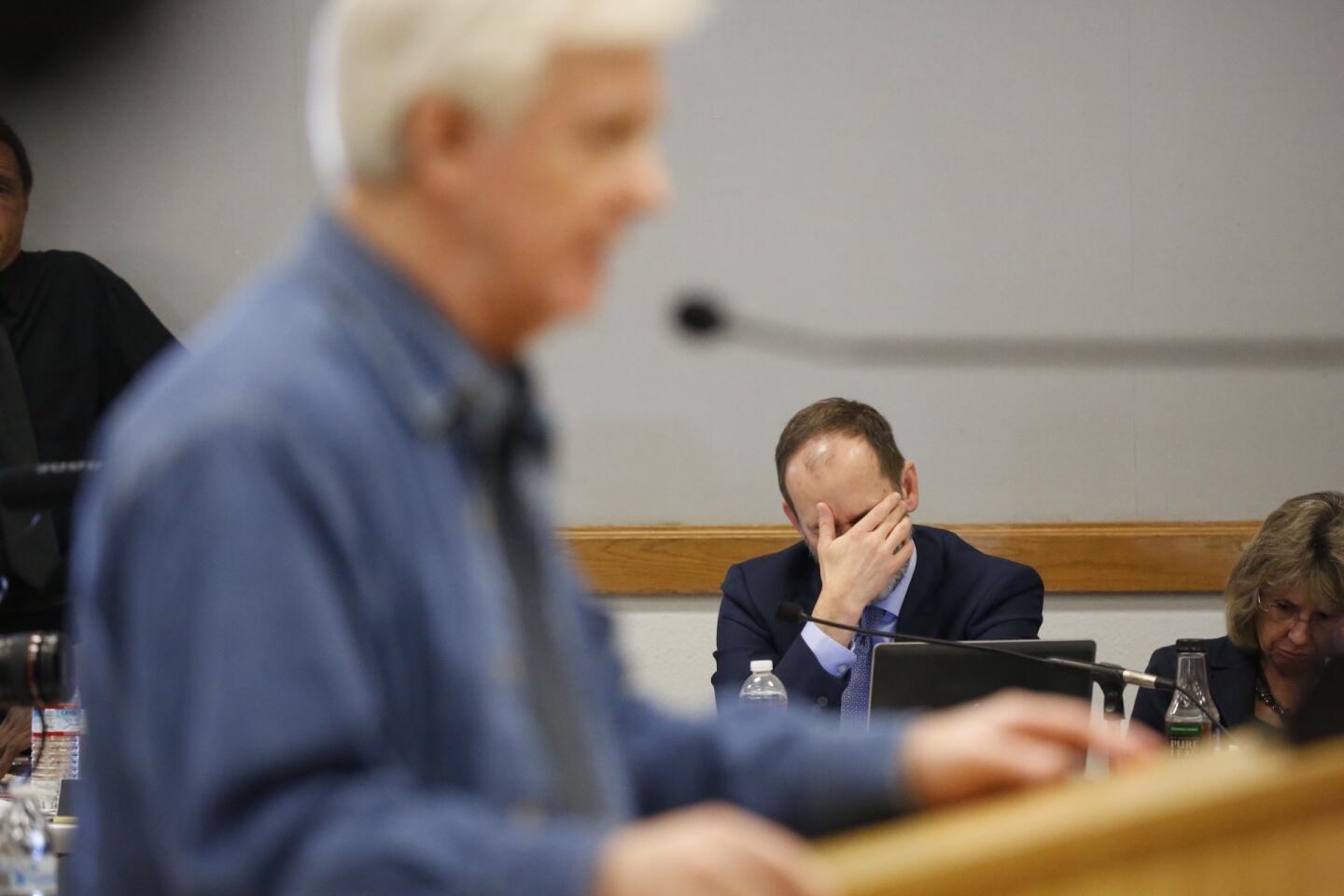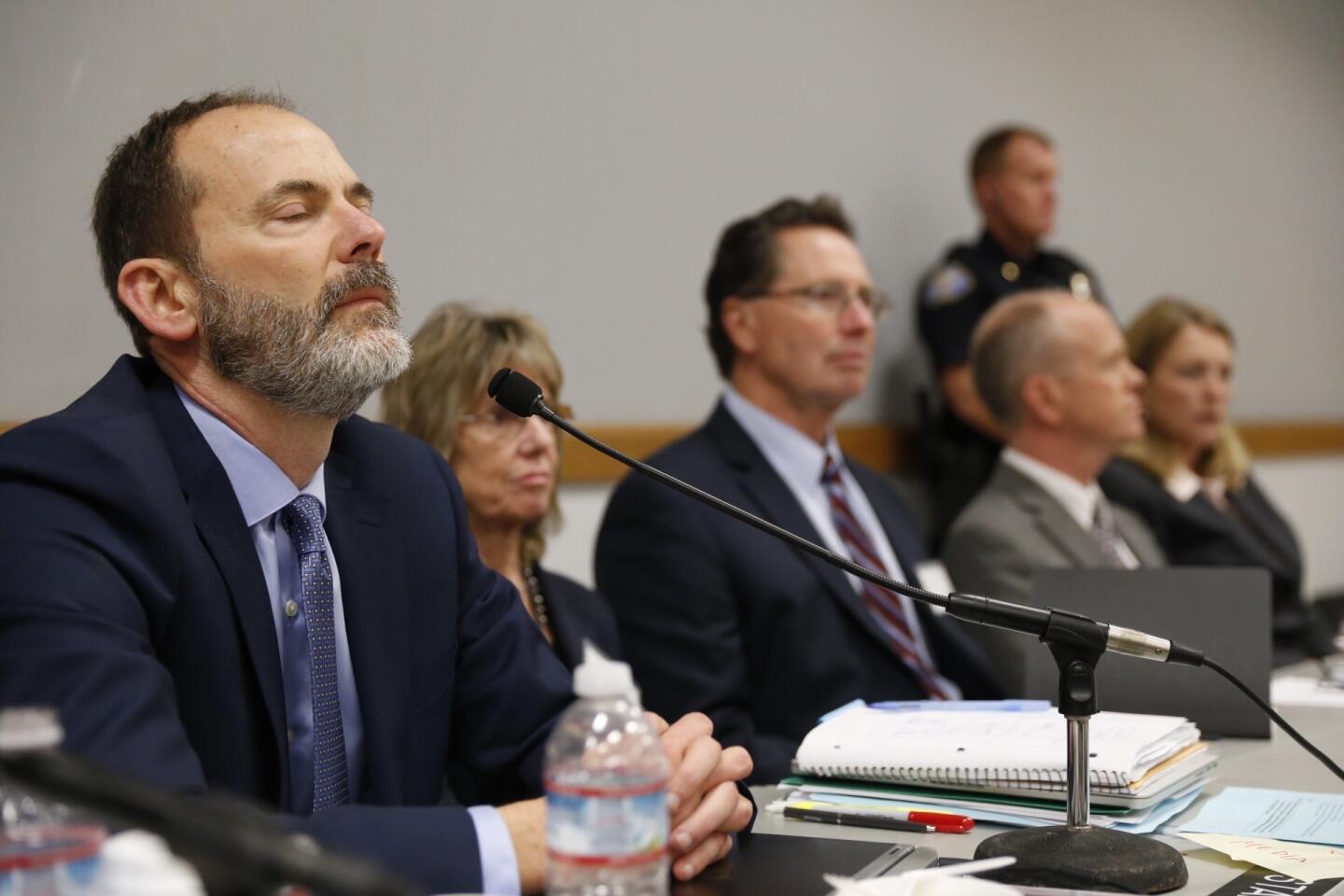Coastal Commission, an agency with populist roots, takes heat over secret-session firing of director
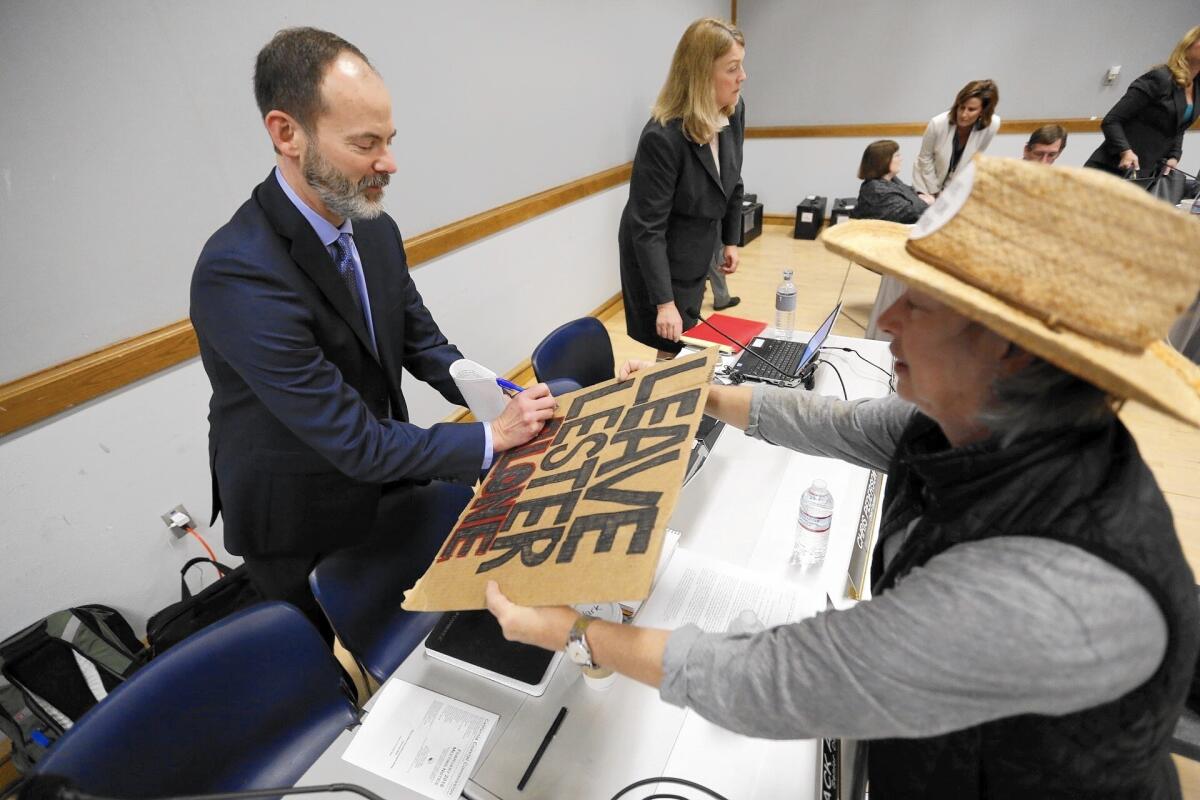
- Share via
REPORTING FROM MORRO BAY, Calif. — The California Coastal Commission, born of a populist movement more than four decades ago, has long maintained the respect of environmentalists and residents fighting to protect the state’s 1,100-mile shoreline.
Conservation-minded Californians have largely supported the agency as responsive to public concerns and transparent in its mission.
But on Wednesday, all that changed. And some now see deep divisions between the two traditional allies.
The commission fired Charles Lester, its executive director, in a secret session Wednesday, with little public explanation, after hearing from more than 200 people who opposed his dismissal and virtually none who favored it.
“Given the long history of the commission as a unique agency created out of the initiative process and the additional sense that this is the public’s commission in a way that any other state agency is not, commissioners owe the public a good explanation as to why they did what they did,” said Mel Nutter, a Long Beach attorney and a member of the Coastal Commission from 1977 to 1985.
“The public thinks it’s their coast, not just the coast of a few folks,” Nutter said.
The commission voted 7 to 5 during its regular meeting in Morro Bay to fire Lester, the first time an executive director has been ousted in its 44-year history. Panelists deliberated his fate and took the action in closed session, saying that Lester had not waived his privacy rights related to his personnel evaluations, which are confidential.

The California Coastal Commission’s decision to fire its executive director, Charles Lester, after closed-door deliberations sparked outrage by environmentalists and is expected to leave deep divisions.
“You made a mockery of the public process when there’s overwhelming support for retaining Dr. Lester,” Robin Rudisill of Venice told commissioners as they continued their regular meeting Thursday. “It just felt like the decision was made long ago and no matter what happened it wasn’t going to change.”
By deliberating and voting in private, commissioners did not act transparently, Rudisill said, adding that their stated reasons for firing Lester “didn’t add up.”
Mary Shallenberger, the longest-sitting member on the commission, called the panel’s closed-door action “a total disregard for the public – the worst I’ve seen in 40 years.”
“It was shameful and despicable for a public agency charged with protecting our coast,” said Shallenberger, who voted to keep Lester.
While not discussing any specifics, some commissioners have said publicly that there were management, trust, confidence and communication problems with Lester and the agency’s staff.
Several commissioners alluded to trouble they have had getting information and complained that they had not been included in agency processes and were often left in the dark about how staff members had come to conclusions related to projects. They also criticized a lack of diversity on the staff.
But absent any details, the hundreds who testified at the hearing were skeptical. They argued that the true motive was to tilt the commission more toward coastal development. In an interview Thursday, Lester echoed their concerns for the first time.
“This commission seems to be more interested in and receptive to the concerns of the development community as a general rule,” Lester said in his first remarks beyond a brief reaction Wednesday night. “There is less focus on how we can make decisions to implement the Coastal Act. ... It remains to be seen how it will unfold.”
Lester suspects he was fired because he was too independent. He is concerned about the direction of the agency if it chooses to replace him with an executive more amenable to the suggestions of commissioners and outside interests.
Before voting to dismiss him Wednesday, several commissioners vigorously denied that they were trying to appease developers or send a signal to the staff to be more flexible on coastal development. But they then debated the issue in closed session — a step their own attorney said was unnecessary.
Chief Counsel Chris Pederson advised commissioners that they were free to discuss any current issues involving Lester’s performance because he had chosen a public hearing to defend himself.
In an interview Thursday, Pederson said it had been clear since Saturday that commissioners were able to publicly discuss their views on Lester’s performance.
A Feb. 6 memo by Pederson said commissioners “may discuss points raised during the public hearing, other matters of public record, their own current thoughts regarding the executive director and management of the agency, and any other issues that they think are relevant, aside from the executive director’s past performance evaluations.”
Pederson said he could not answer whether commissioners knew they were cleared to speak about the matter before then, citing attorney-client privilege.
In the days before the vote, commissioners repeatedly told reporters they were prohibited from speaking about Lester’s performance at the agency.
Sean Hecht, an environmental law professor at UCLA, agreed with Pederson’s interpretation of the law. He said commissioners could have provided statistics or anecdotes about the pace of processing applications or the pace of other commission initiatives.
Their failure to do so “does not make the commissioners look good” and leaves the action open to alternative explanations, Hecht said.
On Thursday, members of the public confronted commissioners again as they continued their regular meeting. They demanded answers and said they were not satisfied with commissioners’ explanations of why they secretly discussed Lester’s fate.
In response to the criticisms, Wendy Mitchell, one of four governor’s appointees who voted to fire Lester, apologized for the ordeal but assured the public that “we are committed to the Coastal Act. We are committed to the coast.”
“The coast is not saved by one person,” Mitchell said.
She vowed that the commission would select a replacement with “impeccable environmental credentials” who would protect the coast for all Californians.
Coastal Commission Chairman Steve Kinsey on Thursday reiterated that the decision was not about the agency’s outlook toward coastal development, but managerial problems with Lester and his staff’s communication with commissioners and fairness toward applicants.
“There has been a slow divide building over trust and respect between commissioners and staff,” he said, including complaints about staff reports that members of the panel believe were designed to manipulate their decisions.
“It was an erosion over time, not a blatant, singular incident,” Kinsey said, noting that the commission held some 25 hours of performance reviews of Lester over the last few years.
Steven Blank, a former coastal commissioner, and Susan Jordan, director of the California Coastal Protection Network, predicted Lester’s dismissal would elicit a strong and sustained response from environmental groups, elected officials, supporters of the agency and the general public.
“On the downside, it’s a tragic loss for all Californians, but it will be a lightning rod for the coast,” said Blank, who served on the commission from 2007 to 2013. “This has been a civics lesson for the public in how regulatory bodies get captured by developers.”
Blank contended that the general concerns expressed about Lester from some commissioners were not serious and did not amount to fireable offenses.
Jordan said her group is working with other environmental organizations to develop a response to Lester’s dismissal.
The coastal protection network plans to redouble its efforts to scrutinize the panel’s decisions, fact-check the statements of commissioners and rate their decisions, she added.
“It was really a shameful display,” Jordan said. “They retreated behind closed doors and put yellow paper over the windows. They voted to terminate him and never, ever told the public the reason why. It was clear they did not have anything of substance.”
Join the conversation on Facebook >>
But attorney Jana Zimmer of Santa Barbara, a coastal commissioner from June 2011 to July 2015 and a former vice chairwoman, said she was sorry that Lester did not waive his privacy rights related to his personnel records so people could openly evaluate them and his accomplishments.
“There was a lot of truth to what people were saying on both sides, but there was lots of exaggeration on both sides too,” said Zimmer, who added that she had a good relationship with the agency’s staff but could not say whether she would have fired Lester.
She contended that commissioners might have benefited from legal advice that clearly advised them on exactly what they could and could not say about Lester’s performance. One of the things that was not addressed, Zimmer said, was whether Lester, in effect, had waived his privacy rights by touting his record at a public hearing.
“What Lester did was set up as a piece of theater,” Zimmer said. “Had commissioners been invited to be specific, they would have had to go into the evaluations and say this, this and this about specific problems over the years and say whether these issues outweigh everything you [Lester] have done. Now people are screaming about a lack of transparency.”
tony.barboza@latimes.com | Twitter: @tonybarboza
dan.weikel@latimes.com | Twitter: @LADeadline16
Barboza reported from Morro Bay and Weikel from Los Angeles.
ALSO
Gas leak at Porter Ranch well is stopped -- at least temporarily
The UCLA gymnast who became a viral sensation by just being herself
Coastal Commission wades into a surf turf war on Palos Verdes Peninsula
More to Read
Sign up for Essential California
The most important California stories and recommendations in your inbox every morning.
You may occasionally receive promotional content from the Los Angeles Times.
